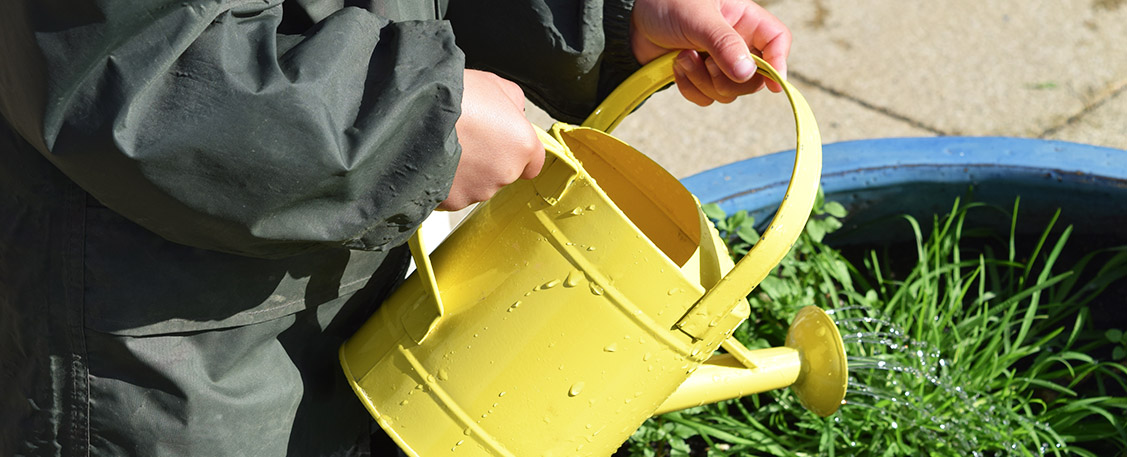The Foundation Stage Curriculum
Personal, Social and Emotional Development
Value, respect & communication skills
PSE encourages children to value themselves, respect difference in others and develop effective skills in communicating their thoughts and feelings.
Skilled and supportive adults are crucial to the effective delivery of PSE by promoting co-operative play and consideration to the needs of others as well as the important skill of negotiating as the children play and share toys.
We understand the importance of a warm supportive 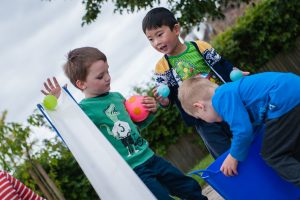 relationship with a key adult, someone who celebrates their successes and encourages them as they explore their environment and challenge themselves with new activities.
relationship with a key adult, someone who celebrates their successes and encourages them as they explore their environment and challenge themselves with new activities.
This subject doesn’t have a dedicated area in Nursery instead it goes on wherever the children are!
So PSE happens when children….
– Talk to their key-worker about what they’ve been doing at home
– Share a drink or snack together
– Practise a new skill and keep going even if it goes wrong at first
– Move from the security of their key-worker to explore their environment together
Communication & Language
Speaking, listening & attention and understanding
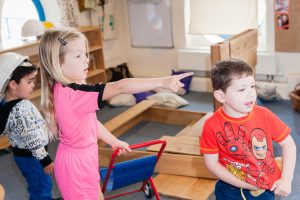 Communicating and being with others helps children to build social relationships which provide opportunities for friendship, empathy and sharing emotions. The ability to communicate helps children to participate more fully in society. Communication in the Foundation Stage is broken down in to three separate skills – speaking, listening and attention and understanding.
Communicating and being with others helps children to build social relationships which provide opportunities for friendship, empathy and sharing emotions. The ability to communicate helps children to participate more fully in society. Communication in the Foundation Stage is broken down in to three separate skills – speaking, listening and attention and understanding.
These are key components of the curriculum, as they form the foundations for literacy and all other areas of learning and we ensure these skills are developed throughout all activities in the Nursery School. Children develop their communication skills through everyday situations in Nursery, such as:
– Asking for the things they want
– Negotiating turns and ideas with other children
– Listening to and understanding instructions, and listening to stories, songs and rhymes
– Learning new words modelled by adults as they are introduced to new concepts and experiences
Literacy
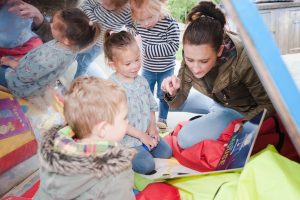 Early reading and writing skills
Early reading and writing skills
As children develop speaking and listening skills they build the foundations for literacy, for making sense of visual and verbal signs and ultimately for reading and writing.
Children need lots of opportunities to interact with others as they develop these skills, and to use a wide variety of resources for expressing their understanding, including mark making, drawing, modelling, reading and writing.
We believe that children learn best through activities and experiences that engage all the senses. For example, music, dance and playing with rhythm, rhymes and songs play a key role in language development.
Physical development
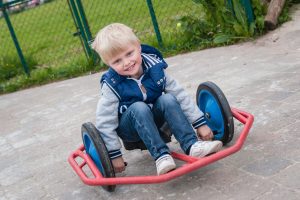 Moving and handling
Moving and handling
All children gain an understanding of the world around through movement and physical sensation. Physical development is learning about:
– Controlling your body in space
– Judging how much strength and speed is needed
– Co-ordinating different parts of the body
– Using fine movements to manipulate tools
– Holding, threading, writing
– Even keeping still!
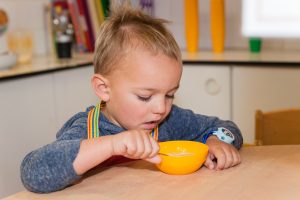 Health and self care
Health and self care
Children are taught ways to keep healthy and safe, the importance of physical activity and healthy food choices, and how to manage basic hygiene and personal needs like dressing and going to the toilet independently.
All children have different needs, mastering skills at different rates and learning in different ways.
Carefully planned activities give time and opportunity for children to develop physical and self care skills with support, care and understanding, allowing them to gain confidence in their learning and their environment.
Mathematical development
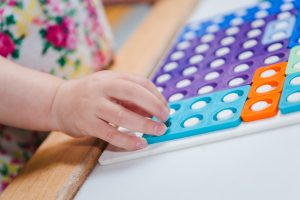 Developing early mathematical skills
Developing early mathematical skills
Through adult planned and child-initiated play opportunities we aim to give children a love of exploring mathematics and mathematical concepts. Development is supported in the following areas:
– Counting and numeracy skills
– Recognising and writing numerals
– Developing mathematical strategies and problem solving
– Understanding shape and space
– Exploring time, weight, size, capacity and ways in which these can be measured
– Understanding and using mathematical language
– Understanding early algebra and pattern in maths through patterning & repeated sequences
Understanding the World
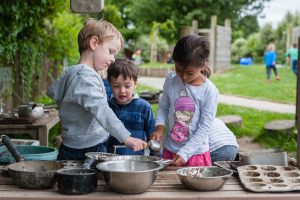 People and communities
People and communities
With a starting point of their own particular personal history, children begin to develop an awareness of differences within families, communities and traditions. They begin to appreciate that other children may well have different likes and dislikes to themselves.
The World
Children initially learn about their most immediate surroundings, before developing their knowledge and experience of the wider environment. Through practical experiences they learn about objects, materials and living things.
Technology
Children gain confidence in handling a range of technology to support and enhance their learning.
Expressive Arts and Design
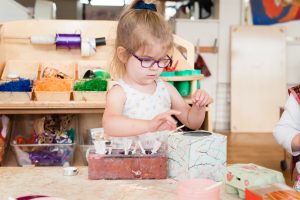
Expressive Arts and Design encourages children to use all their senses, take risks, think flexibly, play with ideas and respond imaginatively.
We believe that all children are creative and recognise that nurturing a child’s journey of curiosity, experimentation and forming personal choices is as important as any ‘end product’ they may produce.
Building interest and knowledge in Expressive Arts and Design will enable children to confidently use media and materials in resourceful ways and explore the diversity of their world and successfully express their ideas, feeling and views of it.
Planned and spontaneous play offers opportunities to:
– Explore and experiment with key techniques and skills for art, design and construction
– Explore and experiment with songs, music and dance
– Begin to reflect upon and evaluate their work and the work of others
– Represent ideas, thoughts and feelings through a variety of media and materials including: painting, printing, textiles, drawing, collage, sculpture, construction, malleable and tactile, music, dance, role play and storyline

